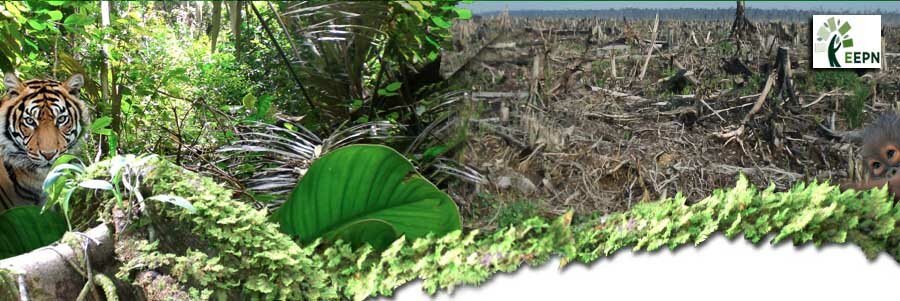Asia Pulp & Paper (APP) and APRIL are managing 38% of the BRG’s restoration total target or 1 million hectare. Analysing a previous analysis by Eyes on the Forest, Auriga says that in order to implement the full restoration mandated by the government, APP and APRIL must restore respectively 1,1 million hectare and 0,6 million hectare from each of their conservation area (approximately 40% of their total concession). Last Thursday, a team of the Environment and Forestry Ministry symbolically removed some acacia plants recently replanted after the fires, in violation with the recent regulations. The action happened at Asia Pulp and Paper (APP) subsidiary, PT BAP, in Ogan Komering Ilir (OKI) regency.
By the end of December 2016, Indonesia's Ministry of the Environment and Forestry issued two official letters iorderig five more Asia Pulp and Paper (APP) to remove all the acacia they have recently replanted in burned peat. The companies are PT RHM, PT TPJ, PT SH, PT BPP and PT SPM.
Previously, the Ministry had sent letters uttering to remove the unlawfully planted acacia to three more APP pulpwood companies (PT BMH, PT SBAWI and PT BAP) operating in South Sumatra’s Ogan Komering Ilir (OKI) regency. As a result, eight APP suppliers has been found violating the new regalements that prohibits planting on burned peat.
On December 23, 2016 Asia Pulp & Paper (APP) announced it had started production at one of the largest pulp and tissue mills in the world. The Ogan Komering Ilir (OKI) mill, in South Sumatra will produce 2 million tons of pulp each year, but according APP sources, production could touch 2.8 or even 3.3 million tons. A group of international and Indonesian NGOs (Rainforest Action Network, Wetlands International, Eyes on the Forest, Woods and Wayside International, HaKI, Auriga) warned that the new mill will endanger Indonesia’s climate change commitments, and demands APP to phase out all drainage-based plantations on peatlands. “The mill’s wood supply is grown mostly on drained peatlands, a production system that causes extremely high carbon emissions and, at times, catastrophic fires.” says a joint statement .
According to the Jakarta Post, the Indonesian Peatland Restoration Agency (BRG) will require forest concessionaires to restore 1.4 million hectares of peatland starting in January 2017. The move is set to affect 650,389 hectares managed by 36 forest concessionaires in five provinces, namely South Sumatra, Central Kalimantan, West Kalimantan, Riau and Jambi, BRG head Nazir Foead said. “The areas to be restored are equivalent to 26 percent of the total peatland restoration target,” Nazir said.
President Joko Widodo granted part of the customary forests lying within a Royal Golden Eagle (RGE) pulpwood concession to an indigenous group as a symbol of the state's recognition of customary forests in Indonesia. The conflict between indigenous groups and the a pulpwood company PT TPL, a subsidiary of pulp giant RGE (also controlling APRIL)has been going on for years. Based on the Ministry of the Environment and Forestry’s data, there are eleven customary forest blocks spread throughout the TPL concession. The recognition given to the customary forests by the state, whereby they will be legally managed by the indigenous groups concerned, was a resolution made by the President. Indigenous groups have been struggling for and awaiting such a resolution for more than seven decades.

